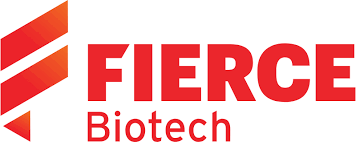
Editor's Note The US Food and Drug Administration (FDA) has designated a Class I recall—the most severe category indicating risk of serious injury or death—for several models of arterial cannulae manufactured by Edwards Lifesciences. Affected products include OptiSite Arterial Perfusion Cannula models OPTI16 and OPTI18, as well as Peripheral Femoral…

Editor's Note The US Food and Drug Administration (FDA) has designated Baxter’s recall of the Q-Link 13 mobile lift component a Class I, the most severe category indicating risk of serious injury or death. As detailed in the agency’s July 23 announcement, the optional component connects to sling bars on…

Editor's Note Designating underused neurosurgery blocks for straightforward ENT procedures increased surgical volume and reduced wait times at UCSF Benioff Children’s Hospital San Francisco, according to a July 3 report from the Children’s Hospital Association’s 2025 Transforming Quality Conference. The initiative began in early 2024, when ENT leaders and surgical…

Editor's Note The US Food and Drug Administration (FDA) issued an early alert for Baxter’s Novum IQ Large Volume Pumps (Model 40700BAXUS) due to potential for underinfusion when transitioning from a flow rate to a higher flow rate (eg, rate change or bolus). According to the agency’s July 22…

Editor's Note Gen Z nurses are leaving the workforce in droves, and CNOs must adapt their leadership strategies to keep them. That’s according to a July 21 HealthLeaders report on the Nurse Experience 2025 analysis from Press Ganey, which found that 24% of Gen Z registered nurses left the workforce…

Editor's Note The Department of Health and Human Services (HHS) has launched a major initiative to reform the US organ transplant system following disturbing findings about organ procurement practices. Fierce Healthcare reported the news July 21. According to the article, the initiative was triggered by a directive from HHS to…

Editor's Note The US Food and Drug Administration (FDA) has deemed Medline’s recent Craniotomy Kit recall, Integra LifeSciences’ MicroMyst Applicator recall, and Maquet Critical Care’s recent ventilator recall as Class I, the most severe category indicating serious risk of injury or death. As detailed in a July 22 FDA announcement,…

Editor's Note Adapting general-purpose humanoid robots already trained on large-scale industrial tasks for use in surgery could provide a solution to burnout, understaffing and other problems. This is the primary takeaway of a July 9 article from UC San Diego detailing the work of robotics expert Michael Yip, who has…

Editor's Note Surgeons at Duke and Vanderbilt universities have devised simpler methods to retrieve donor hearts after circulatory death, according to a July 16 report from the Associated Press (AP). The research, published in the New England Journal of Medicine, details successful heart transplants using organs from donors whose hearts…

Editor's Note Mendaera has received US Food and Drug Administration (FDA) clearance for its Focalist system, a compact robotic device that aims to improve precision in ultrasound-guided needle-based procedures. Fierce Biotech reported the news July 9. As detailed in the article, Focalist device is intended to assist with a range…